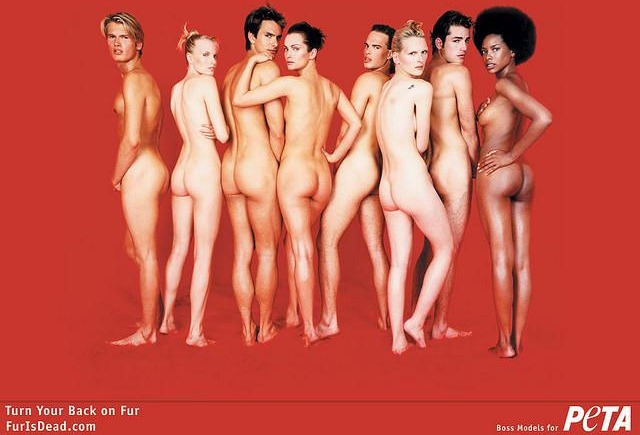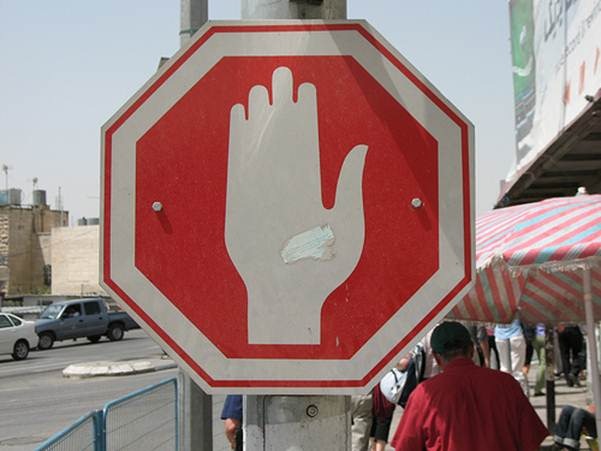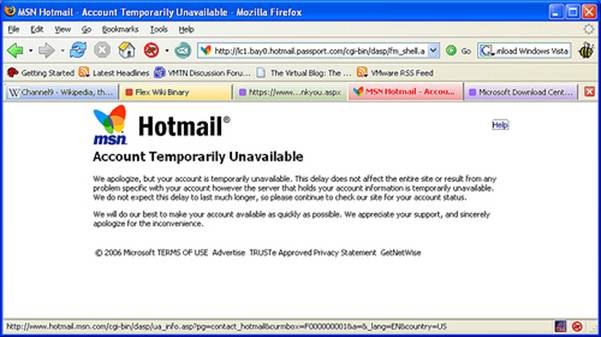Nowadays your web address is synonymous with your identity, and for those who don't have an interesting enough identity of their own, it can seem like a good idea to hijack somebody else's.
By now, most of the web addresses associated with famous individuals and companies have been registered. However, the carelessness of people when typing web addresses into their browsers can be a goldmine for so-called typosquatters who register a commonly misspelled variant of the true address and let the profit -- or in some cases mischief -- flow.
We've picked ten of the most infamous cases of this kind of cybersquatting.
10. GodHatesFigs.com

Perhaps one of the more amusing cases of typosquatting was GodHatesFigs.com - a parody website of the domain GodHatesFags.com which was the property of the Westboro Baptist Church.
Famous for picketing soldiers funerals and chanting about Gods hate for the world, the Church can't have been pleased by the lampooning they were subjected to with GodHatesFigs.com pointing out all the biblical references to Jesus dislike of figs and fig trees.
The fig-scorning site is sadly no longer around.
9. Paris Hilton
This one was always going to result in some confusion.
When Paris Hilton wanted to start a web presence she registered parishilton.com, as, of course, there is another, rather larger Paris out there somewhere in France.
Unfortunately this untypical modesty didn't pay off for the socialite as somebody registered Paris.org in 2005 and started filling the website with pictures, not of the beautiful and romantic French capital, but of the bottle-blonde hotel heiress (which might come as something of a surprise following some inexpert typing).
Paris has been on a roll since then, filing suit for the domain names Paris-Hilton.com, ParisHiltonPerfume.com and ParisHiltonHeiress.com among others (though none of those sites seem to be publishing Paris Hilton related content today).
Meanwhile, those looking for the city of the Eiffel Tower and the Arc de Triomphe at Paris.org are now redirected to the Wikipedia page on Paris, France.
8. Jerry Falwell
Christian Evangelical preacher Jerry Falwell has a lot of devoted followers but his vehemently anti-gay rhetoric has also upset many people.
One such individual, Christopher Lamparello, registered the misspelling Fallwell.com (note the extra l) in 1999 and used the gripe site to provide accidental visitors with biblical references and scriptural sources used to argue against the fundamentalist preachers views on homosexuality.
Falwell filed a complaint over trademark infringement, unfair competition, and cybersquatting, and the National Arbitration Forum and District Court initially decided in the preachers favor.
However, in 2005 the decision was overturned on appeal as Lamparellos site was non-commercial, and in 2006, the Supreme Court declined to hear a counter-appeal from Falwell.
7. Microsoft
In what has to be one of the best examples of corporate heavy-handedness, Microsoft took on a Canadian teenager by the name of Mike Rowe because the website for his part-time web design business, MikeRoweSoft.com, sounded too similar to Microsoft.com.
"Since my name is Mike Rowe, I thought it would be funny to add 'soft' to the end of it," said Rowe candidly in 2004.
The company charitably offered him $10 compensation, but Mike Rowe held out for $10,000.
Because of his intent to profit from selling the domain to Microsoft, it was held to be cybersquatting and Rowe was handed a cease and desist order by the WIPO.
The site now redirects the user to a Bing search page -- currently topped by the Wikipedia article Microsoft vs. MikeRoweSoft.
6. Lands End
In this case, the typosquatters took advantage of Lands Ends online affiliate program where website owners could earn money by directing shoppers to the website of the clothing retailer.
The typosquatters did so, but rather than just directing customers via the websites they claimed they owned -- PoshShops.com and ShoppersEGuide.com -- they instead registered tens of mispelled variants of Lands Ends domain name (think: lnadsend.com, klandsend.com and landsende.com... You get the drift).
Mistyping shoppers would thus appear to be going directly to landsend.com but would be profiting the typosquatters and defrauding Lands End.
5. PETA
PETA is a byword for vegetarianism, anti-fur activism and naked celebrities professing their love of same.
In 1995, one Michael Doughney noticed that the domain name PETA.org was up for grabs, promptly registered it, and branded it as the internet home of "People Eating Tasty Animals," a site with links to sites promoting the sale of meats and leather goods.
Understandably, perhaps, PETA was not impressed (despite a link at the bottom of the page that pointed lost visitors toward the real PETA website) and sued over alleged trademark infringement, unfair competition and cybersquatting.
The district and circuit courts ruled in PETAs favor and turned the domain name over to them, but denied their application for costs, ruling that Doughney had not acted maliciously. PETA is now based on the .org site, with PETA.com redirecting to the same location.
4. Jennifer Lopez
When fans are looking for the latest updates from singer, actress, clothing line owner and perfume-seller Jennifer Lopez, they check out JenniferLopez.com.
If, however, back in 2009, they accidentally substituted a .org or a .net they would instead have been taken to fan sites run by Jeremiah Tieman.
What's more, not only would they have missed out on the very latest information from J-Lo, but they would have been bombarded with ads and affiliate links trying to part them from their hard-earned cash.
The fiery performer promptly filed suit and in the end it was the money-making additions to the websites that cast them as cases of cybersquatting, with the domains returned to Jennifer Lopezs Foundation. Only the .com site remains functional today.
3. Career Agents Network
The Career Agents Network was shocked to discover that when you substituted .biz for .com in their web address you ended up at a site that warned visitors to stay far away from the company; the work of a disgruntled customer who had established the site in 2009.
Career Agents Network promptly filed suit, claiming cybersquatting.
Unfortunately for them, the fact that the website wasnt intended to make money meant that there was no case to answer, and the .biz site carried on happily dishing the dirt.
2. Alf Temme
When people are trying to check their email, what they really want to be doing is buying an extortionately expensive exercise machine -- at least that seems to have been the thought process behind Alf Temmes typosquatting schemes.
Temme registered such typo-domains as ho0tmail.com and hot5mail.com and redirected them to his exercise website.
Microsoft sued for $2.4 million, but were prepared to settle for $500,000.
Temme views this as extortion. Maybe he could offer them some free exercise machines?
1. John Zuccarini
John Zuccarini -- arguably the world's most notorious cybersquatter -- was fined not once, but twice for massive reams of registrations for domain names that were typos of child-friendly websites.
The worst thing is that he wasn't just trying to capitalize on advertising revenue for toys or candy -- he was redirecting children to porn sites.
The first time that he faced the authorities he was ordered to give up nearly $1.9 million in gains, and fled the country for the Bahamas, only to face imprisonment when he was discovered in a Holiday Inn in Florida.
The second incident he was implicated in saw him fined $164,000, but given that he likely earned millions of dollars a year in advertising revenues, it is easy to see why he kept up his nefarious activities despite being rumbled.
Bonus Cybersquatter: Madonna.com

As a Madonna fan, it might have seemed sensible to type in Madonna.com when looking for information, interviews or tour dates relating to the Queen of Pop.
Unfortunately, however, prior to a ruling by the World Intellectual Property Organization, the fan would have found not music videos (nor even information about the Catholic faith), but porn at the web address.
New York resident Dan Parisi had registered the domain name, but WIPO found that he had no rights to, or legitimate interest in the domain name, which it was ruled he had registered in bad faith.
Her music videos might be a little naughty, but Madonna felt that a porn website damaged her name and reputation Which is fair enough.










